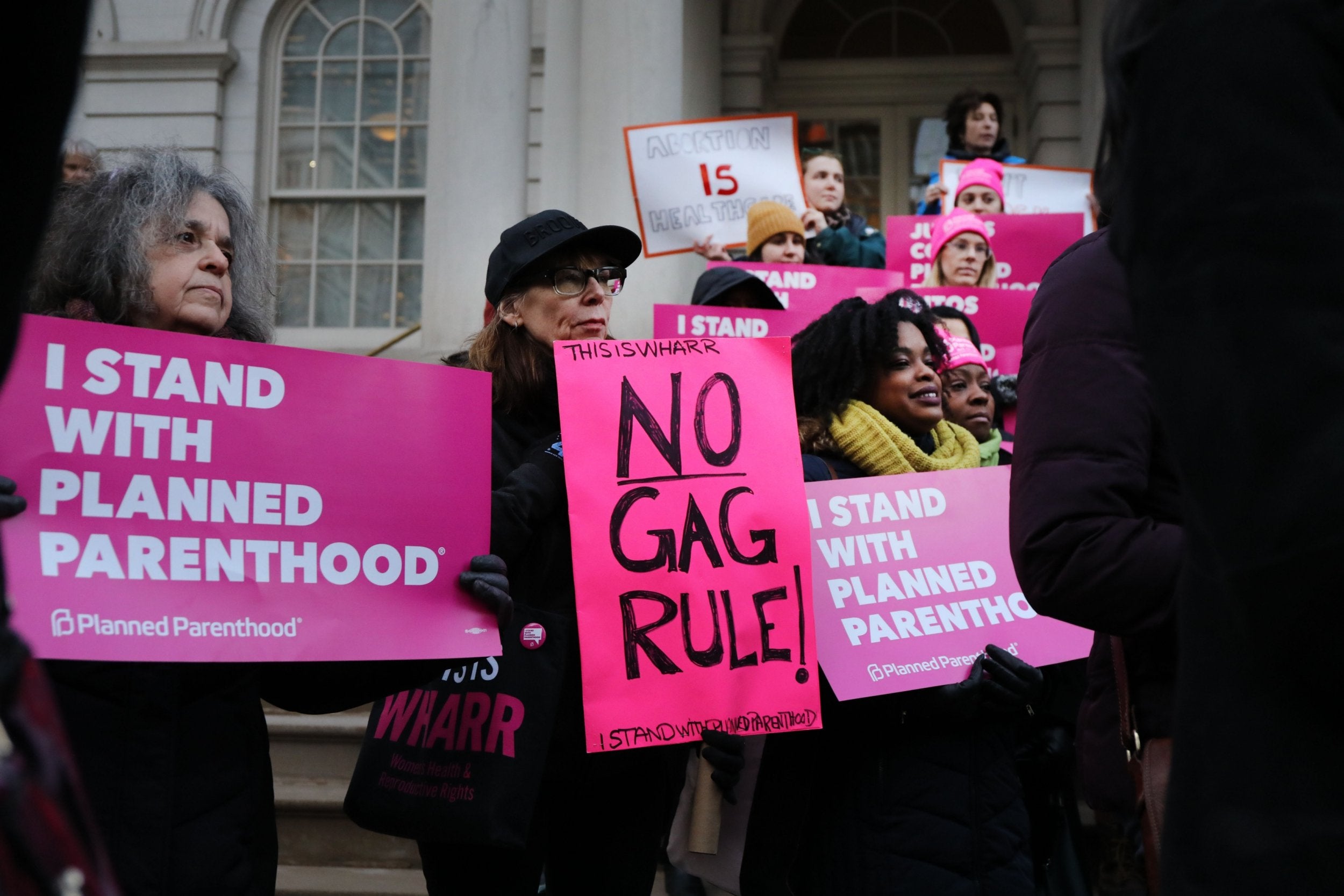Four US states pass restrictive laws to oppose abortion access in major crackdown on reproductive rights

Your support helps us to tell the story
From reproductive rights to climate change to Big Tech, The Independent is on the ground when the story is developing. Whether it's investigating the financials of Elon Musk's pro-Trump PAC or producing our latest documentary, 'The A Word', which shines a light on the American women fighting for reproductive rights, we know how important it is to parse out the facts from the messaging.
At such a critical moment in US history, we need reporters on the ground. Your donation allows us to keep sending journalists to speak to both sides of the story.
The Independent is trusted by Americans across the entire political spectrum. And unlike many other quality news outlets, we choose not to lock Americans out of our reporting and analysis with paywalls. We believe quality journalism should be available to everyone, paid for by those who can afford it.
Your support makes all the difference.Four states in the US passed restrictive legislation opposing abortion access on Wednesday, as reproductive rights came under fire from all angles under the Trump administration.
State legislatures in Arkansas and Utah passed bans on most abortion after 18 weeks of pregnancy – moving the states closer to enacting bans that could be among the strictest in America.
Kentucky’s Republican-led legislature passed its latest measure to place more restrictions on abortion.
The legislation would ban abortion for women seeking to end their pregnancies based on the foetus’s sex, race, colour, national origin – or potential diagnosis of Down’s syndrome or any disability.
“We will see the state of Kentucky in court (again),” the American Civil Liberties Union of Kentucky, a state which only has one abortion provider, tweeted soon after the vote.
Doctors violating the measure would face felony prosecution and the loss of their medical licence and any clinic where a violation occurred would lose its licence.
In Kansas, legislators sent a message to their counterparts in New York about the law the state passed on the 46th anniversary of Roe V Wade that protects women’s access to abortion if the historic case is overturned.
Roe v Wade is the landmark Supreme Court decision that legalised abortion nationwide in 1973.
The Kansas House voted on Wednesday to approve the resolution, which declares that the New York law offends Kansas’s and the nation’s values and incites “abuse and violence towards women and their unborn children”.
“We need to stand as a group and stand up for the unborn babies in every state and nation,” state representative Barbara Wasinger, a Republican, said after likening abortion to the Holocaust.
Alarm bells have been raised that Roe v Wade could be overturned or radically undermined with new conservative justices Neil Gorsuch and Brett Kavanaugh sitting on the Supreme Court.
The Trump administration took aim at Planned Parenthood last month by issuing a rule barring groups that provide abortions or abortion referrals from participating in the $286m (£215m) federal family planning programme. The move is expected to redirect tens of millions of dollars from the women’s health provider to faith-based, anti-abortion groups.
Meanwhile, the “heartbeat bill” was passed by Republicans in the Georgia House of Representatives last week.
The bill would ban most abortions after six weeks of pregnancy and aims to outlaw terminations carried out after a foetal heartbeat is detected. At six weeks, many women do not yet know they are pregnant.
Similar restrictions are under consideration in Mississippi, Florida, Kentucky, Ohio and South Carolina.
During a tense debate last week, at least 20 Democrats, who oppose the restrictions, turned their back on the bill’s Republican author, Ed Setzler. About six female Democrats protested against the vote by walking out of the chamber.
Earlier in the day, some Democrats had brought in wire coat hangers, in reference to unsafe home abortions.
If the anti-abortion bill passes the Georgia Senate and is signed into law by governor Brian Kemp, it would be among the most restrictive in the US. Women in Georgia currently have the right to undergo an abortion up to 20 weeks into a pregnancy.
Mr Setzler, the heartbeat bill’s sponsor, branded abortion a “barbaric procedure” and said women who become pregnant still have options under his proposal, citing carrying a pregnancy to term and putting the baby up for adoption. His bill makes exceptions in cases of rape or incest but only after an official police report has been filed.
The heartbeat bill will almost certainly trigger legal challenges if it is passed by Georgia’s state Senate and signed into law.
But anti-abortion activists hope that such a challenge will lead to the US Supreme Court reversing Roe vs Wade. The Supreme Court has previously ruled that states cannot ban abortion before a foetus is viable – about 23 to 25 weeks.
Join our commenting forum
Join thought-provoking conversations, follow other Independent readers and see their replies
Comments